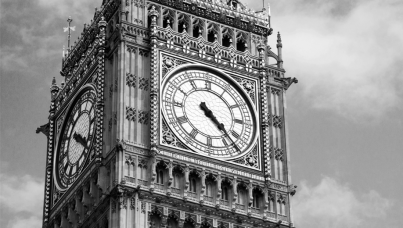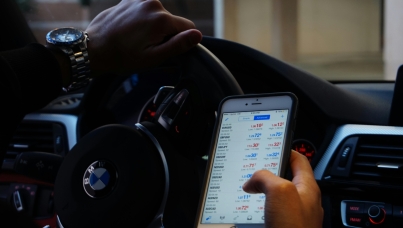Ahead of the Spring Statement, economic optimism is at its lowest level since December 2022
Ahead of Chancellor Rachel Reeves’ Spring Statement next week (26 March), the British public remain deeply pessimistic about the state of the economy, according to new research by Ipsos. The research, carried out earlier in March, found that economic optimism is at the lowest level since December 2022.
Economic confidence at the lowest point since shortly after Sunak became PM
- Ipsos’ Economic Optimism Index asks Britons whether they think the general economic condition of the country will improve, stay the same, or get worse over the next twelve months, and has been tracking the economic mood of Britons since 1978. The latest results show 13% think the economy will improve, and 67% get worse, giving a net figure of -54 which is the lowest level since December 2022, shortly after Rishi Sunak became Prime Minister in October 2022, following the Liz Truss and Kwasi Kwarteng ‘mini budget’.
- At the same point (8 months) into the new Labour government, the level of economic optimism today is similar to that of Boris Johnson’s premiership at the start of the Covid-19 pandemic. A similar proportion of public think economy will get worse (67%) now, as at same point during Gordon Brown’s premiership, during the financial crash of 2008.
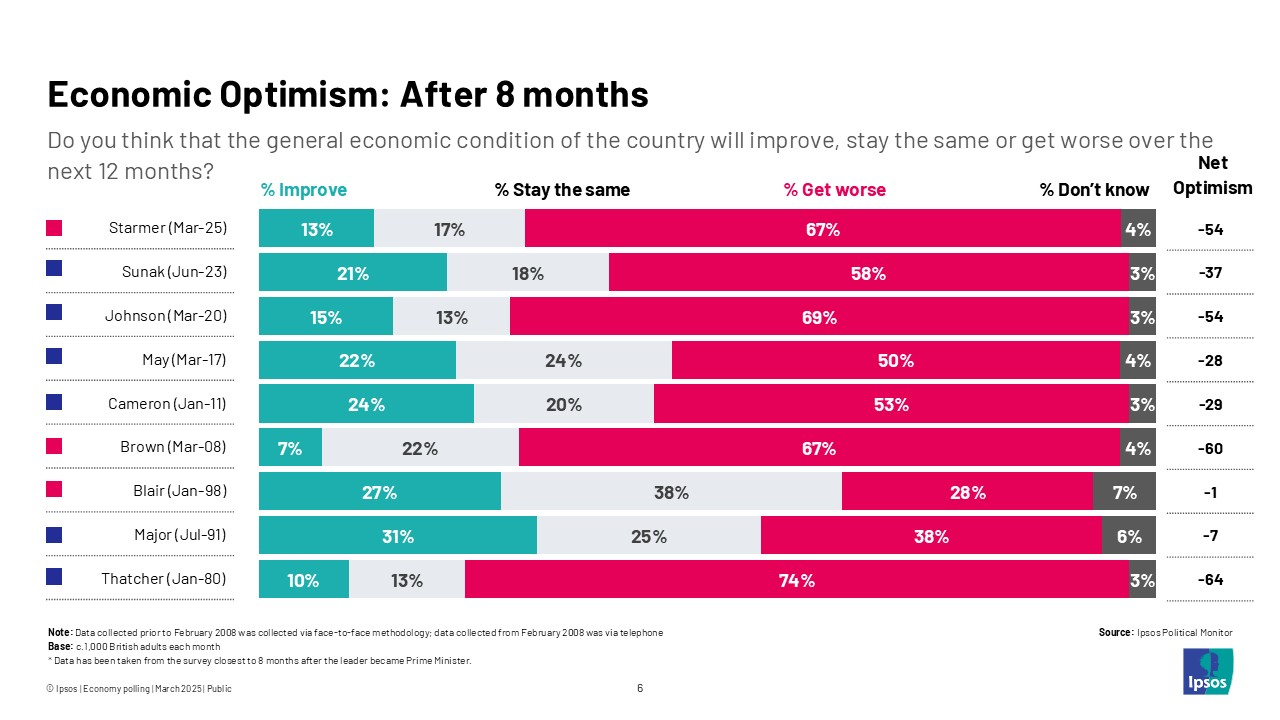
- 76% of Britons believe the economy is currently in a poor state, while just 19% believe it is in a good state.
- Looking ahead to one year’s time, the public remain pessimistic, with 60% overall expecting the economy to be in a poor state in March 2026. Labour 2024 voters are split, with 44% expecting the economy to be doing well in a year’s time and 45% badly, but there is more pessimism elsewhere, with 70% of Conservative voters, and 80% of Reform UK voters expecting the state of the economy to remain poor.
- When asked what factors are most likely to influence their perception of how the economy is doing, Britons continue to cite inflation (54%) and interest rates (45%) as the most important factors.
- Just over two in five (44%, down 6 ppts since February) say that Rachel Reeves is doing a bad job as Chancellor (17% good job). This is about the same level of popularity as Chancellor as Jeremy Hunt two months before last year’s general election.
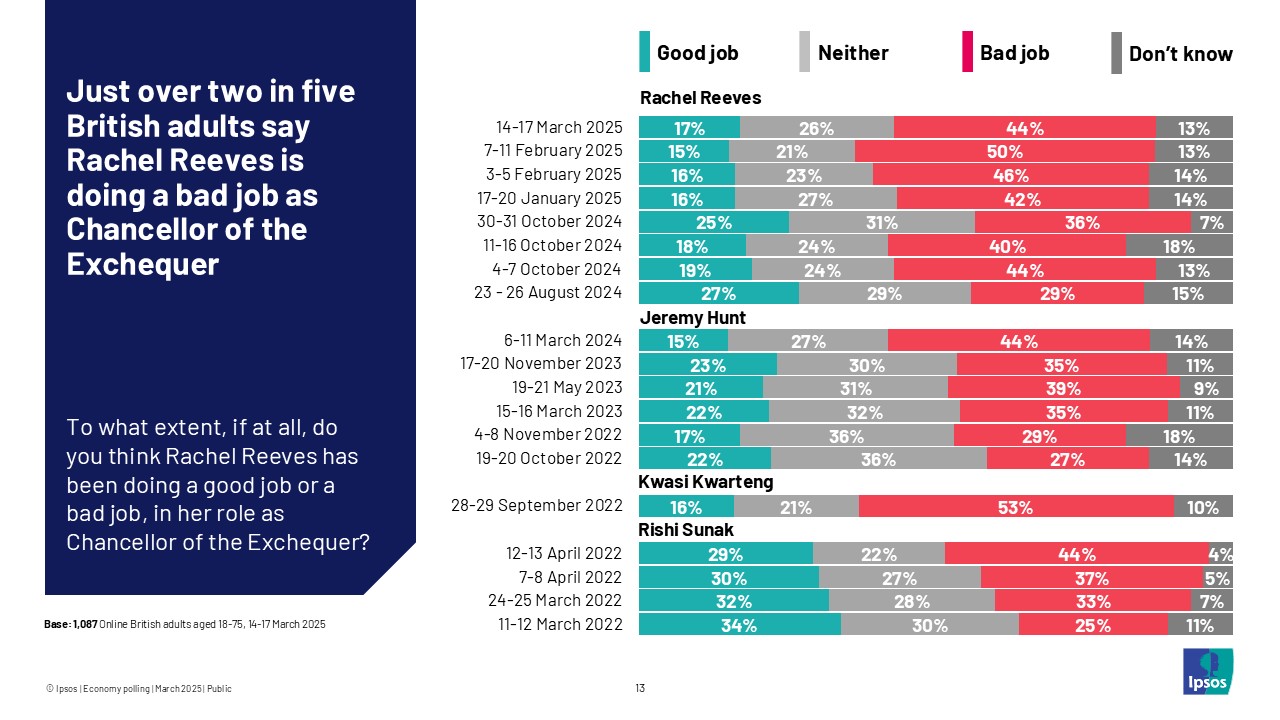
Who is to blame?
- When asked what has most contributed to the British economy currently being in a poor state, those who said it was in a poor state were most likely to say the impact of the Covid-19 pandemic (46%), followed by decisions made by the former Conservative Prime Minister, Liz Truss and former Chancellor Kwasi Kwarteng (43%). Decisions made by the current Prime Minister Keir Starmer and Chancellor Rachel Reeves come in third at 41%.
- Conversely, those who say that the economy is currently in a good state are most likely to credit decisions made by Keir Starmer and Rachel Reeves (32%, a 9 ppt increase since January 2025). This is followed by decisions made by the Bank of England (31%, +8 ppts), and the productivity of British workers (29%, +6 ppts).
What do Britons want from the Spring Statement?
- When asked what they want to hear from Rachel Reeves in next week’s Spring Statement, three quarters (75%) of Britons say it is important to hear her talk about Labour’s plans for improving public services. This is followed by a desire to hear about the problems currently facing public services, and Labour’s plans to grow the economy (73% each).
- Half (50%) of Britons say they are fearful about how announcements in the upcoming Spring Statement might impact their own financial situation. 44% say that they are fearful about how the announcements may impact the quality of public services.
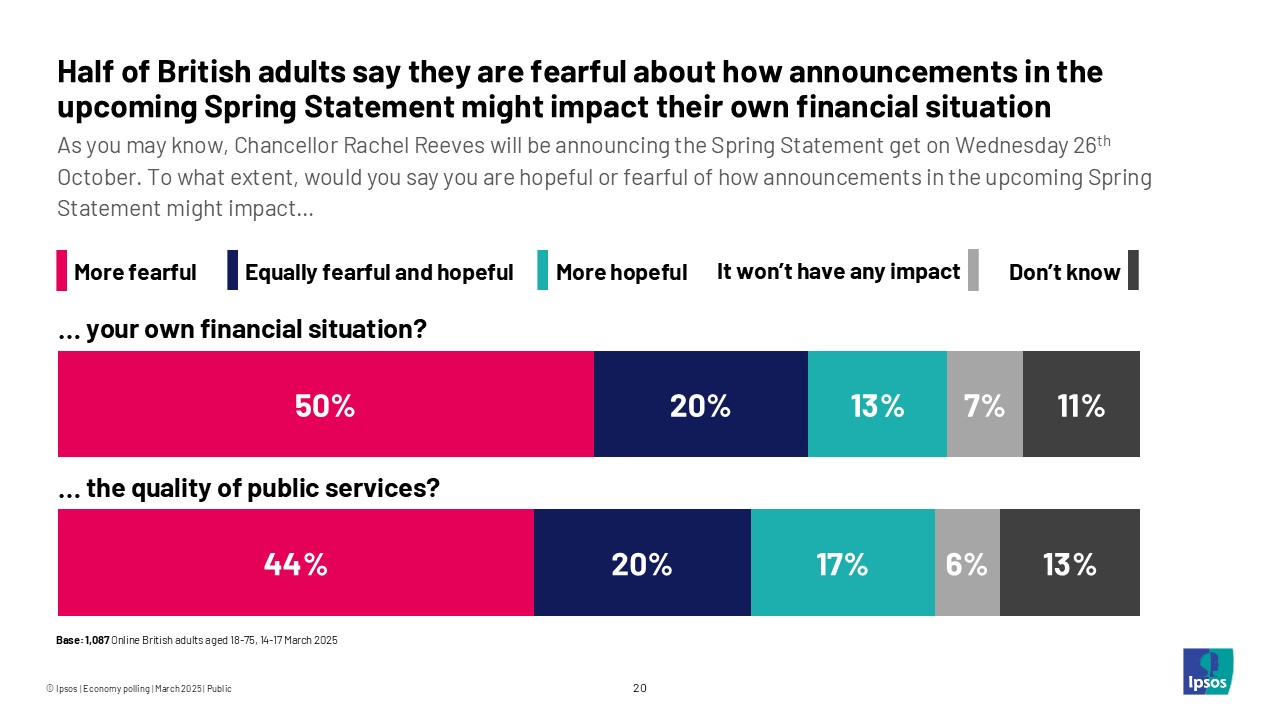
- When asked whether they would prefer the Chancellor to increase borrowing to spend more on public services, even if it means the national debt gets higher, or reduce borrowing to cut the national debt even if it means less spending on public services, Britons continue to be split (29% vs 34% respectively).
- Similarly, when asked whether they would prefer the Chancellor to spend more money on public services, even if it means paying more in taxes, or cut taxes for individuals, even if it means spending less on public services, Britons are again split (34% vs 31%).
- When asked their expectations over the next year, 71% of Britons think it is likely that that Labour will increase the taxes that they pay, while 42% think it likely they will increase spending on public services more this year. Compared with expectations of a Labour government before the 2024 election, the belief that they will further increase taxes is up from 56%, while the belief that they will increase spending on public services is down from 59%.
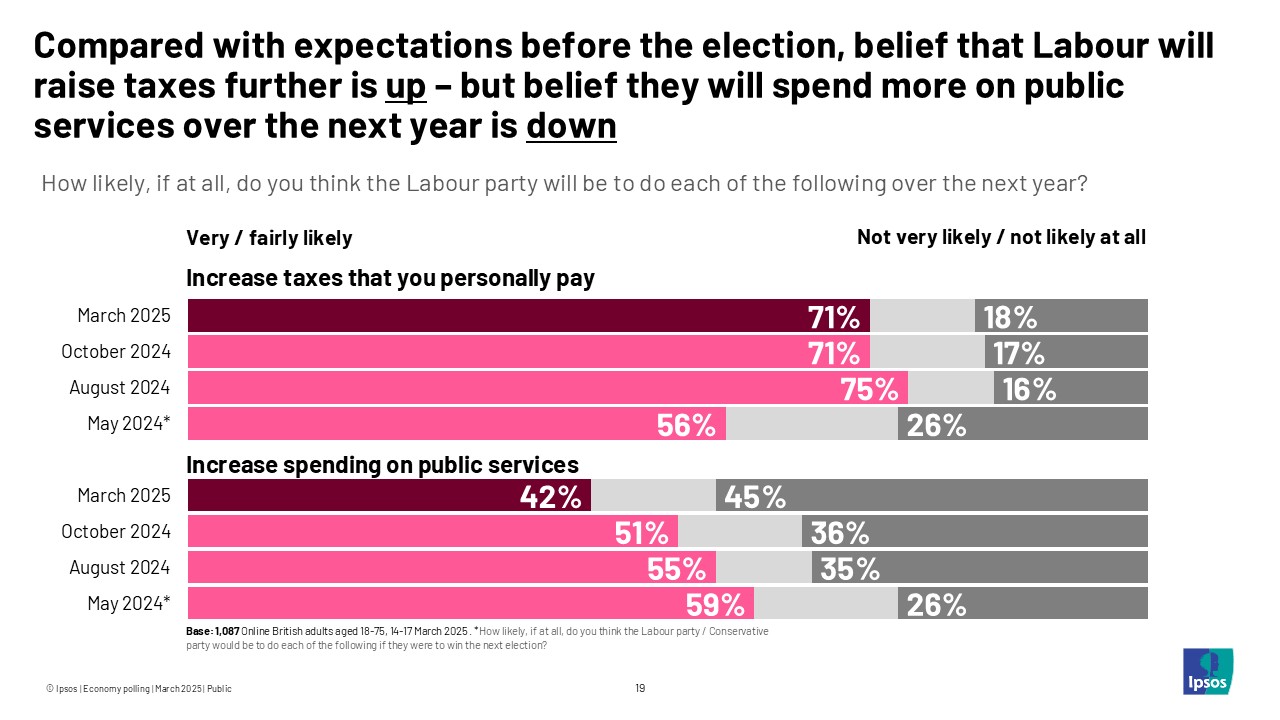
Lack of confidence in long-term economic plans
- The poll also found that the public are not confident that any of the main parties have a good long-term economic plan, nor a good plan for changing Britain generally. 34% of Britons say they are confident that the Labour party has a good long-term economic plan for Britain, followed by Reform UK at 30%, the Conservatives at 29%, and the Liberal Democrats on 25%.
- Similarly, 36% of Britons say they are confident that the Labour party has a good plan for changing Britain generally (+4 ppts since February 2025), closely followed by Reform UK at 34%, the Liberal Democrats at 29%, while 28% say the same about the Conservative party (+4 ppts).
- However, Labour remains the most trusted party on the economy. 23% say that they trust the party the most to manage Britain’s economy, followed by the Conservatives on 16% and Reform UK on 15% (Liberal Democrats 6%, Green Party 5%). Even more, though, (32%) say that they don’t know.
Commenting on the findings, Gideon Skinner, Senior Director of UK Politics at Ipsos, said:
The British public are clearly feeling very gloomy about the economy ahead of the Spring Statement next week, with economic optimism at its lowest level since December 2022, and with half of Britons fearful about how announcements in the Spring Statement might impact their own financial situation. The British public continue to be very worried about the cost of living and are split over their preference between increasing spending or cutting taxes, which remain a concern. But public services are also a priority, and perceptions that Labour will spend more on public services are falling. With 44% saying that they are fearful about how the announcements may impact the quality of public services, against a backdrop of already low levels of satisfaction with public services, Rachel Reeves will want to ensure that she provides the British public with some cause for optimism when she steps up to the dispatch box.
Technical note:
- For the Economic Optimism Index data, Ipsos interviewed 1,000 British adults aged 18+ by telephone, 5-11 March 2025. For the rest of the Spring Statement polling, Ipsos interviewed a representative sample of 1,087 adults aged 18-75 across Great Britain. Polling was conducted online between the 14th and 17th March 2025.
- Data are weighted to match the profile of the population. All polls are subject to a wide range of potential sources of error.


